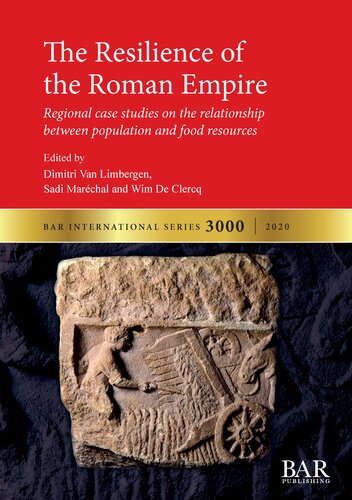

Most ebook files are in PDF format, so you can easily read them using various software such as Foxit Reader or directly on the Google Chrome browser.
Some ebook files are released by publishers in other formats such as .awz, .mobi, .epub, .fb2, etc. You may need to install specific software to read these formats on mobile/PC, such as Calibre.
Please read the tutorial at this link: https://ebookbell.com/faq
We offer FREE conversion to the popular formats you request; however, this may take some time. Therefore, right after payment, please email us, and we will try to provide the service as quickly as possible.
For some exceptional file formats or broken links (if any), please refrain from opening any disputes. Instead, email us first, and we will try to assist within a maximum of 6 hours.
EbookBell Team

5.0
78 reviewsThe Resilience of the Roman Empire discusses the relationship between population and regional development in the Roman world from the perspective of archaeology. By adapting a comparative approach, the focus of the volume lies on exploring the various ways in which regional communities actively responded to population growth or decline in order to keep going on the land available to them. The starting point of the theoretical framework for the case studies is the agricultural intensification models developed by Thomas Malthus and Ester Boserup. In order to advance the debate on the validity of these models for identifying the societal and economic pathways of the Roman world, the contributors incorporate the concepts of resilience and diversity into their approach, and shift attention from the longue-durée to how people managed to sustain themselves over shorter periods of time. The aim of the volume is not to discard the theories of Malthus and Boserup, but rather to deconstruct overly strict Malthusian or Boserupian scenarios, and as such introduce novel and more layered ways of thinking by exploring resilience and variability in human responses to population growth/decline in the Roman world.